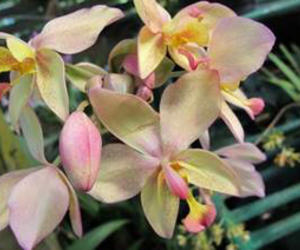Cuban biologists study hurricane threats to Orchids in Guanahacabibes Reserve
- Submitted by: manso
- Society
- 10 / 06 / 2011

2011.10.04.radiorebelde.icrt.cu. PINAR DEL RIO, Cuba.- Cuban Scientists Assess Environmental Impact on Orchids. Scientists from the westernmost Cuban province of Pinar del Rio are assessing the environmental impact of tropical hurricanes, that periodically hit the western region of Cuba, on the populations of orchids in the Guanahacabibes Peninsula.
An expert from ECOVIDA, a research center of the Ministry on Science, Technology and Environment (CITMA), Ernesto Mujica, told the press that this study gives priority to the analysis of three species in this area, which is one of the six biosphere reserves in Cuba.
Mujica said that the project deals with two endemic species: Broughtonia cubensis and Encyclia bocourtii, with high scientific value given their centralized location. The latter is only found in Cabo de San Antonio, Cuba’s westernmost point.
He noted that the third orchid is called Dendrophylax lindenii, which can also be observed in other places of the Cuban archipelago and in Florida, in the United States.
The specialist affirmed that the monitoring from 2004 on revealed stability in the first two species and decadence in the last one and that they are carrying out long term studies to determine if that is the result of hurricanes or the characteristic fluctuations of the environment.
Mujica mentioned that a potential factor is an imbalance in reproductive biology due to the shortage of fruits for the negative impact of these storms on pollinating insects.
Specialized books state that orchids constitute the most abundant family of flowering plants in the planet with more than 25,000 species, in spite of their delicate structure. (ACN)
Comments